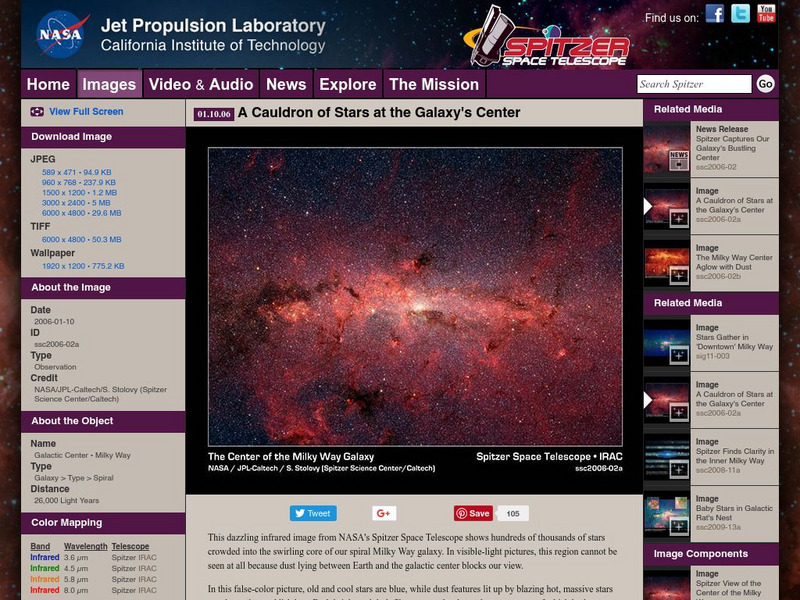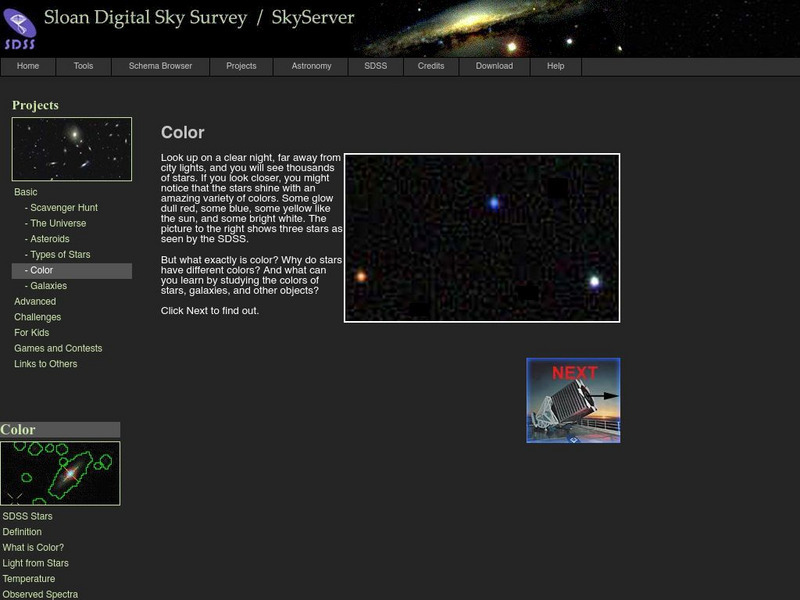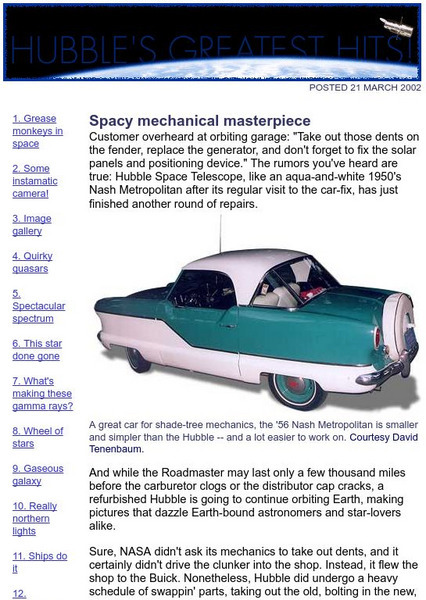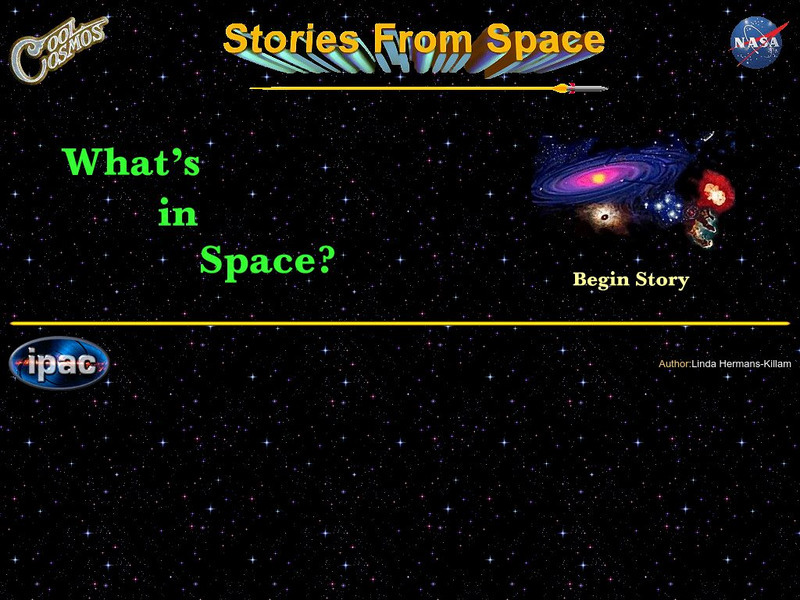Hi, what do you want to do?
NASA
Nasa Space Place: What Is a Light Year?
Brief description of light-years with examples and images.
California Institute of Technology
Spitzer Science Center: Center of the Milky Way
This space telescope image displays the center of the Milky Way Galaxy and its "A Cauldron of Stars." In addition, a detailed textual overview explains various specifics of the picture.
Curated OER
Sky Server: Scavenger Hunt
In this site, from the SkyServer of the Sloan Digital Sky Survey users hunt for stars, galaxies, quasars, asteroids and meteors. Learn what they look like and how to find them.
Other
Sky Server: Color
SkyServer answers why stars have different colors and shows what you can learn by studying the colors of stars, galaxies, and other objects.
Enchanted Learning
Enchanted Learning: Zoom Astronomy
Where is our Solar System? How far away is the sun? What makes up the sun? Find out all you want to know about our solar system. This is a comprehensive on-line site about space and astronomy. Check out all of the excitement!
Nine Planets
The Nine Planets: Sun Picture List
Various pictures and movies of the sun. Download some of these files and then give a presentation to your class explaining the solar phenomena.
University of Wisconsin
The Why Files: Spacy Mechanical Masterpiece
An interesting article describing repairs which were completed on the Hubble telescope in 1993 and 1997. Also contains links to pictures taken by the telescope.
NASA
Nasa: Imagine the Universe: "Nasa Detects One of Closest"
Site provides the article, "NASA Detects One Of Closest And Brightest Gamma Ray Bursts." Provides links to learn more about gamma rays and black holes as well as other resources.
Other
Paper Plate Education: Serving the Universe on a Paper Plate
Excellent resource for "paper-plate" activities that help simplify various astronomy topics. Learn how to build a "Moon Finder" and "Planet Pointer," and create a paper-plate model that explains the Transit of Venus.
Other
Kid Power: Astronomy for Kids
Young children can find facts about the Solar System, the Sun, meteorites, stars, galaxies, planets, our moon, comets, asteroids, and space exploration. Pages offer clear photos and bullet-point information, which is easy to read and...
California Institute of Technology
Cal Tech: Stories From Space: What's in Space?
Through this story you will be introduced to outer space: stars, the Milky Way, planets, the Solar System, the Sun, clouds of dust and gas, galaxies.
Mocomi & Anibrain Digital Technologies
Mocomi: How Big Is the Universe?
Provides facts about the Universe, Jupiter, the Milky Way Galaxy, and Superclusters.
NASA
Nasa: Imagine the Universe: Welcome to the World of Multiwavelength Astronomy!
This Imagine the Universe site provides an introduction into the multiwavelength universe and astronomy. Site provides graphics, links to a quiz, facts on this topic as well as teacher resources.
PBS
Pbs Learning Media: Birth of a Supernova, Type Ia
In this interactive activity from NOVA Online, learn about a type of exploding star - a Type Ia supernova - that is so bright that astronomers can measure the distance to the galaxy in which it resides, and even learn which elements make...
Curated OER
Science Kids: Science Images: Universe Timeline
This diagram shows a universe timeline as suggested by many scientists and theoretical physics experts. This popular timeline of the universe has different stages which include: quantum fluctuations, inflation, dark ages, first stars,...













